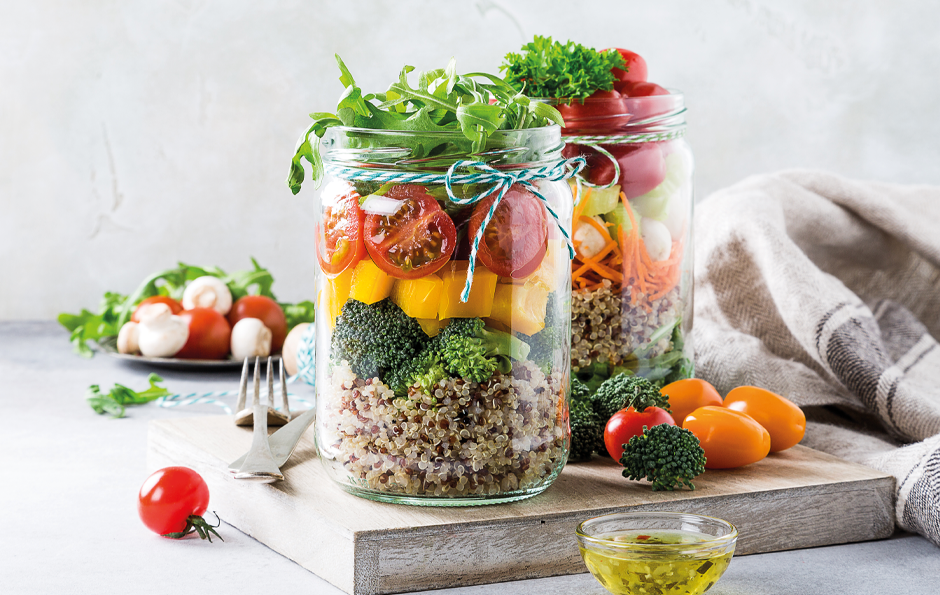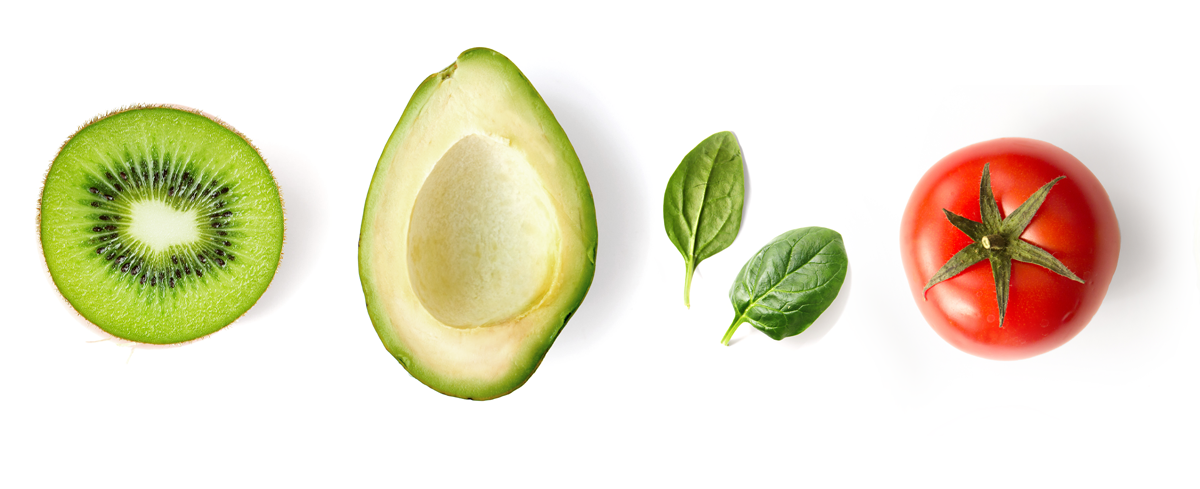 When made with the right ingredients, a mixed salad can become a healthy way of taking on board essential minerals and vitamins and getting the results you want. Try these three recipes! Can a salad really supplement our diet with essential nutrients? Of course it can! It all depends what you put in it. As well as being a quick fix for lunch or dinner, which you can make at home and take to work, a mixed salad can become a valid therapeutic, healthy or slimming option. The main ingredient is lettuce and you can use as much as you like, choosing from the different varieties that each have their own characteristics. In the recipes below, it works in synergy with the ingredients it is mixed with to give you all the macronutrients you need for your well-being which are often missing from our daily diet. So, choose the recipe that best suits your needs and fix it with the freshest ingredients you can find.
When made with the right ingredients, a mixed salad can become a healthy way of taking on board essential minerals and vitamins and getting the results you want. Try these three recipes! Can a salad really supplement our diet with essential nutrients? Of course it can! It all depends what you put in it. As well as being a quick fix for lunch or dinner, which you can make at home and take to work, a mixed salad can become a valid therapeutic, healthy or slimming option. The main ingredient is lettuce and you can use as much as you like, choosing from the different varieties that each have their own characteristics. In the recipes below, it works in synergy with the ingredients it is mixed with to give you all the macronutrients you need for your well-being which are often missing from our daily diet. So, choose the recipe that best suits your needs and fix it with the freshest ingredients you can find.
No more feeling bloated.
LAMB’S LETTUCE: Has small leaves which do not ferment. TUNA: Highly digestible and rich in Omega 3, it helps take centimetres off your waist. Use 100 g tuna in brine. AVOCADO: A great source of good fats and key to a flat tummy; put in a quarter. KIWI: Contains fibre but no fermentable sugars. Put in half, diced. QUINOA: Gluten free, it doesn’t bloat you; add 40 g, boiled. CHIA SEEDS: Another good source of Omega 3, they help reduce inflammation of the digestive system. Use one teaspoon. WILD FENNEL: Add a couple of fresh fronds, it absorbs intestinal gases. Seasoning: A spoonful of apple vinegar, rich in enzymes which prevent bloating, and a teaspoon of extra virgin olive oil. When: If you’ve eaten too much pasta and bread; if you have difficulty digesting and feel heavy after meals. SALAD CAN BECOME A VALID THERAPEUTIC, HEALTHY OR SLIMMING OPTION.
No more cholesterol.
ICEBERG LATTUCE: Rich in fibre and water, it lowers fat levels in the blood. AMARANTH: Contains phytosterols which help boost good cholesterol (HDL). Add 30 g, boiled. TOFU: Free from saturated fats, it is a great source of vegetable proteins. Just use 70 g, diced. PISTACHIOS: Pistachios stop cholesterol from oxidising and becoming dangerous for the arteries; add 10 g. ALFALFA SHOOTS: They clean and reoxygenate the blood. You can find them in the supermarket ready for use. Seasoning: Mustard and rice oil. Mustard is a source of niacin, which protects the arteries from atherosclerosis. Take a spoonful of mustard and mix with a spoonful of rice oil which, thanks to the presence of gamma oryzanol, lowers levels of bad cholesterol (LDL). When: If you have high cholesterol or at lunchtime if you are going to eat fried or grilled food for dinner.
Energy boost.
ROCKET: This is an excellent source of iron and fights fatigue. Use it with a mixed salad which offers a complete bouquet of minerals. MILLET: Millet gives you a boost thanks to its minerals and group B vitamins which transform food into energy. Use 40 g, boiled. STRIPS OF CHICKEN: Chicken will give you the lean proteins your muscles need. Add 60 g, grilled. SUNFLOWER SEEDS: A source of pantothenic acid and an anti-stress. You only need a spoonful. TOMATOES: Remineralising and rehydrating, tomatoes restore strength to muscles. GOJI BERRIERS: These are a great source of manganese and help fight physical and mental tiredness. Use 20 g dried berries. Seasoning: Extra virgin olive oil (two teaspoons) and the juice of half an orange which provides vitamin C which is needed to assimilate iron and produce energy. When: If you are planning to do some sport, during a stressful day or if you feel tired. 


Validate your login
Sign In
Registrati a "Medavita Salon Friends" e ricevi vantaggi e promozioni per i servizi in salone.
Create New Account